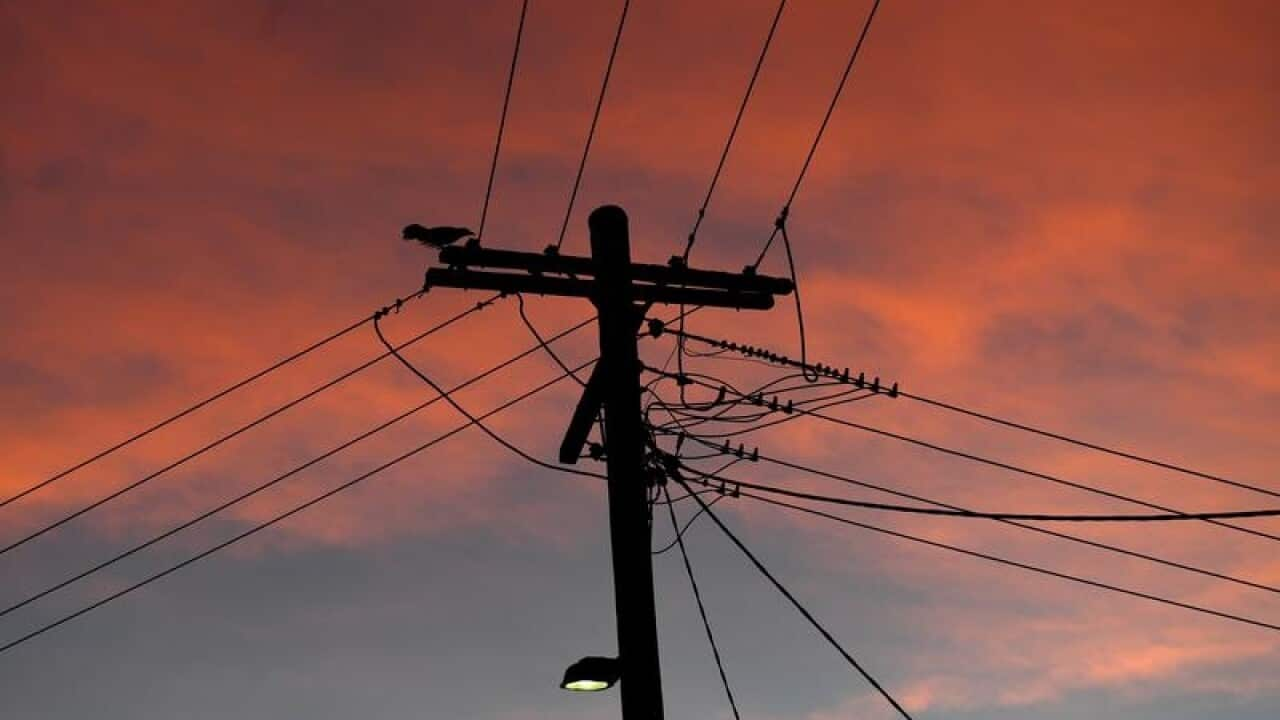Key points:
- There will be no subsidies for renewable energy, or any other kind
- Power companies will be forced to guarantee on-demand electricity from coal, gas, hydro or batteries that store renewable energy
- They will also be forced to keep carbon dioxide emissions below a certain level
The government's new energy plan will force electricity retailers like Origin, AGL and Energy Australia to ensure they have a reserve of on-demand power from dispatchable sources like coal, gas or renewables batteries.
They will also be forced to ensure they limit their carbon dioxide emissions, under enforcement mechanisms yet to be discussed with state governments.
The Turnbull Government has agreed not to pursue a proposed clean energy target, as was recommended in a report from Australia’s Chief Scientist Alan Finkel. Instead it will implement a new so-called National Energy Guarantee.
The Guarantee will replace the previous Clean Energy Target, which will be met in 2020.
But there will be no more subsidies for renewable power.
Announcing the plan, Prime Minister Malcolm Turnbull said green sources of energy were now financially viable and could sustain themselves without government help.
"There is no need for a subsidy," Mr Turnbull said. "In other words, they can compete on a level playing field."
The Coalition party room signed off on the new National Energy Guarantee on Tuesday after a cabinet meeting voted to abandon the controversial renewables target on Monday night.
Chief Scientist Alan Finkel presented the government with 50 recommendations on energy policy in a report earlier this year.
The government has pledged to adopt 49 of them, but today the government confirmed it would not adopt the 50th - a clean energy target.
Instead the electricity companies will be forced to limit the carbon dioxide emitted in making the power they sell to a certain amount.
The amount is yet to be legislated but the government said it remained committed to meeting Australia's international carbon targets under the Paris agreement.
The reliability guarantee
They will also be forced to guarantee they have a certain reserve of so-called dispatchable power – electricity than can be provided to the grid any time, on demand.
The amount will be set state-by-state and will be negotiated with the states through the Council of Australian Governments.
Solar and wind power are not considered dispatchable as they cannot always be called on instantly.
Coal and gas-fired power stations and batteries that store renewable power, including pumped hydro batteries, would meet the criteria.
Coalition backbencher Craig Kelly, a long-standing opponent of subsidies for renewable energy, said the government's new plan was "superior" to the target proposed by Dr Finkel.
"It's not so much he [Dr Finkel] was wrong as just this plan is superior. This plan does more to tackle the issue of reliability and it also will help put further downward pressure on prices," Mr Kelly said.
Energy retailers will be able to buy or contract existing dispatchable power, or contract another company to build resources for them - such as a new coal or gas plant, or a battery.
But Solar Council chief executive officer John Grimes said the government was locking in coal and gas by mandating that the energy needs to be dispatchable.
"For wind and solar to be dispatchable energy you need big batteries, they are really expensive today," Mr Grimes said.
"Energy is not a free market, it requires a government plan and what the government is doing is saying post 2020 we have no plan for renewable energy".
Lower power bills
The government is confident power bills will drop by $100 to $115 per year from about 2020 to 2030.
Energy Minister Josh Frydenberg said the scheme would provide investment certainty as the scheme essentially guarantees there would always be a strong market for dispatchable power.
"It provides investor certainty, which the market has been crying out for for a long time," Mr Frydenberg said.
"It reduces volatility which, of course, has been driving up prices."
Mr Frydenberg praised the system for its simplicity, seemingly making a comparison with previous climate policies like the carbon tax and the emissions trading scheme.
"It means no subsidies, no taxes, no trading systems," he said.
Labor's Shadow Minister for Climate Change and Energy Mark Butler said not enough information around the policy had been released and the Opposition would await detailed modeling.
"There has been an announcement today from the government, but there are so many un-answered questions about that announcement's detail," he said.
"It's very difficult for anyone to make a serious assesment about it's ability to do those things, to ensure reliable supply, affordable power for households and businesses and that Australia discharges it's commitment around emissions reductions".
Related reading

Power prices may not fall with clean energy target: ACCC

